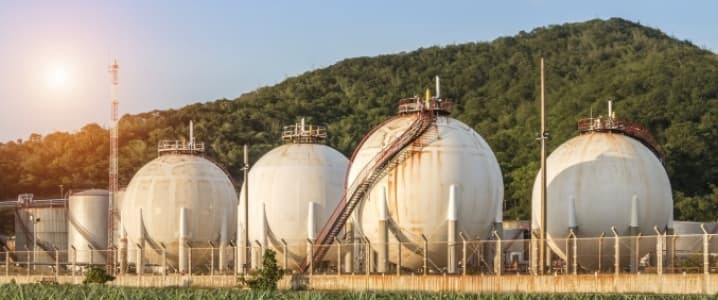The world’s second largest private oil company sees a new future, and it’s not in oil.
Shell has made a concerted effort to shift the bulk of its business from oil-related projects to natural gas, LNG and renewables. Coming on the heels of its February purchase of BG Group (a $54 billion acquisition), Shell has organized a division focused solely on renewable energy. It announced new investment for its LNG facility on Curtis Island in Australia, where natural gas has enjoyed $180 billion in new capital. It has emerged as a stronger voice on global climate change than its competitor ExxonMobil and the company’s website proposes a number of “Shell Scenarios” that could allow for a growing energy market while creating less CO2.
This move towards gas and renewables, combined with Shell’s traditional ability to innovate during major market shifts and navigate changes in energy infrastructure, has benefitted the company’s position relative to its competition. Barron’s declared Shell the “world’s best big oil stock,” citing its move away from high-cost production projects, including the abortive move on drilling newly-opened Arctic deep-sea areas, which Shell nixed in 2015. Shell’s diverse revenue stream, relative to a competitor like ConocoPhillips, allows it to correct for imbalances in one sector while taking advantages of innovations in another.
Shell isn’t ready to become the environmentally-friendly oil international quite yet. In late June Shell’s CEO Ben van Beurden told a British audience that Shell was prepared to assist the UK with its climate-change goals “when it makes business sense,” noting that different countries develop energy-economies at different rates. He nevertheless cited the 2015 Paris Agreement, which bound Britain to lower its carbon emissions by 90 percent by 2050, from the 1990 level.
Natural gas could replace oil and coal as a major electricity producer and source of transportation fuel, facilitating a shift to less carbon-intensive energy processes and assisting many developed nations with their climate change goals. Yet natural gas may have already missed its opportunity to become the new fuel, as investment in renewables accelerates, battery capacity improves and demand for clean energy grows. Natural gas, and particularly LNG, requires immense capital outlays and complex technical processes in order to churn out commercially-viable products. Related: Why Oil Prices Might Not Rebound Until 2019
Projects like Chevron’s Gorgon LNG terminal in Australia or Cheniere’s Sabine Pass facility in Louisiana require years to construct, with prohibitively high costs. While Sabine Pass successfully went on line earlier this year, Gorgon has been plagued with delays and setbacks. Both projects were greenlit when the oil prices (to which LNG is pegged) was high and future demand for LNG in East Asia was estimated to grow. But now demand is slowing, particularly in China, while a series of expensive projects coming online at once has flooded the market, including ENI’s Coral development in Mozambique.
Shell has worked to avoid any more costly development projects. A partnership project in Canada was cancelled in mid-July. The company’s plan to 2020 was announced in June, with an emphasis on maintaining the 6.6 percent dividend through reducing capital expenditures and shedding losing assets. Shell has also announced thousands of job cuts, transitioning to a leaner business model. The company has already laid-off more than 12,000 employees, with more cuts likely in the future.
Shell wants to shed around $30 billion in assets by 2018, primarily to pay for its acquisition of BG Group. Some worry was expressed in early July that the departure of Britain from the EU would slow the sale of Shell assets in the North Sea, where buyers are scarce. The assets are declining in value and North Sea oil is particularly un-competitive at current price levels. Related: Did Oil Kill The Dinosaurs?
After dropping in the wake of the Brexit vote in late June, Shell (a British/Dutch company) saw its stock recover at a brisk pace. Shell hasn’t announced a cut to its dividend in 70 years.
Confidence in Shell weathering the storm appears high, and the company is better-positioned than some of its competitors. Yet much of that confidence may be predicated on hopes that natural gas and LNG have a big part to play in the ongoing energy transition. As one analyst has noted in a major article, there’s a good chance market fundamentals and global economics will keep energy prices low for the foreseeable future. If that happens, the major investments Shell has made in LNG production may not pay out.
Yet Shell has already shown itself capable of major reorganization and retrenchment, in order to preserve its dividend and market position. It’s possible that the company will succeed even if market fundamentals keep the energy sector depressed for years to come.
By Gregory Brew for Oilprice.com
More Top Reads From Oilprice.com:
- Oil Markets Panic After EIA Reports Surging Gasoline Inventories
- Trump vs Clinton: How Will Energy Fare?
- Bad News For Miners: Cash Strapped Governments Up Royalties

















